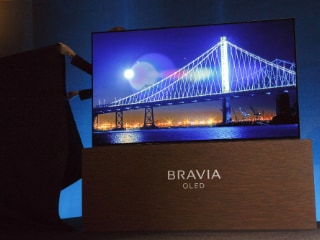- Home
- Apps
- Apps Opinion
- Uber Needs a Tim Cook. Can Its New CEO Deliver?
Uber Needs a Tim Cook. Can Its New CEO Deliver?

Photo Credit: Bloomberg
Some Uber observers were sarcastically relieved that new CEO Dara Khosrowshahi's first meeting with employees on Wednesday went without a single sexist gaffe. That part of Uber's history is probably behind it, given Khosrowshahi's reputation for low-key levelheadedness and the stellar record of his former company, Expedia, in hiring women (they make up 52 percent of its staff and a quarter of tech employees, compared with 36 percent and 15 percent respectively at Uber). But a less frat-like culture could make Uber a better employer without making it a more profitable company. On the business execution front, I have misgivings about Khosrowshahi at Uber.
These misgivings aren't about his worst business decision - to pass on the ground-floor acquisition of Booking.com because its margins were too low and Expedia was, he thought, doing fine buying and reselling rooms from big hotel chains. Khosrowshahi later admitted his error and introduced the Booking.com model at Expedia. He has been justly praised for that by Ben Thompson, who writes the Stratechery tech blog. Many people focus on Expedia's stellar stock performance since Khosrowshahi's overhaul of the platform and a series of high-profile acquisitions.
But in terms of operational benchmarks, Expedia's performance compares badly to that of Priceline - the company that did buy Booking.com. The hotel market sees the two firms as a duopoly in online bookings, and, after Expedia's acquisition spree, they are roughly the same size in terms of revenue. They operate on the same market. Yet Priceline's gross margin is consistently above 95 percent while Expedia's is below 85 percent. Priceline has made almost $1.2 billion in net profit so far this year while Expedia has lost $29 million. Priceline does a better job managing costs and has significantly higher sales per employee.
New Chief Challenged to Steady the Wheel at Uber
Uber has lived for years on vision and adrenaline. Until now, its business model was to throw a lot of investors' money at markets where regulators didn't clamp down immediately on its pretense of being a tech company rather than a taxi operator. The bet was that nobody else could burn so much cash, and competitors would give up. The strategy largely failed in two of the company's largest markets, China and Russia, where Uber was forced to leave its business to local players in exchange for a share.
If Uber goes ahead with the cash-burning strategy, it will fail in more places, because it's unsustainable. Cash is finite, and regulation is inevitable. Uber desperately needs a workable business model on which to base an expansion model - if, in fact, it still wants to expand aggressively - and that means focusing attention on exactly those areas in which Expedia lags behind Priceline.
To turn around Expedia, Khosrowshahi adopted, a little belatedly, a model on which Priceline bet with the Booking.com acquisition. In Uber's case, there's no one to imitate. The reinvention process needed to turn Uber into a properly functioning, profitable business is a dangerous, lonely undertaking. Uber, for example, likely faces some tough decisions concerning one of the early highlights of its offering - surge pricing. It doesn't quite work for passengers, who hate it, or for drivers, who try to game it or, if they're less greedy and more experienced, disregard it.
Uber needs to differentiate itself from other services, which have copied the essential parts of the technology but avoided similar mistakes in setting up driver motivation. Uber has a confusing, frustrating, hard-to-track system of driver bonuses that could be better at turning a profit and at motivating drivers. Drivers like Lyft better, not least because its system is clearer and the pay tends to be better for a unit of work. Riders don't see much of a difference between the two.
The leadership of Uber now is a job of operational management and business model-tuning. It's sort of like the handover at Apple from Steve Jobs to Tim Cook: Cook is not a visionary, but he is a financial, supply chain and operational manager par excellence. But, unlike Apple at the time of that 2011 handover, Uber is a wildly unprofitable, undermanaged mess of demotivated workers and squabbling directors.
It won't be obvious anytime soon how good Khosrowshahi will be at Uber because success turns on under-the-hood changes that may or may not work. But I will feel better about the company's future if I see Uber giving up Napoleonic world-domination plans, making more deals with strong local competitors, streamlining the driver compensation system without scaring off drivers, and generally paring down its operational losses.
That may not be quite what investors expect of Uber after the previous CEO, Travis Kalanick, sold them a world conqueror's vision. Coming down to earth might result in a lower valuation. But Uber is an intricate business, not a force of nature. Khosrowshahi still has to prove he has the skills to manage the intricacy - under less-than-ideal circumstances.
2017 Bloomberg L.P.
Catch the latest from the Consumer Electronics Show on Gadgets 360, at our CES 2026 hub.
Related Stories
- Samsung Galaxy Unpacked 2025
- ChatGPT
- Redmi Note 14 Pro+
- iPhone 16
- Apple Vision Pro
- Oneplus 12
- OnePlus Nord CE 3 Lite 5G
- iPhone 13
- Xiaomi 14 Pro
- Oppo Find N3
- Tecno Spark Go (2023)
- Realme V30
- Best Phones Under 25000
- Samsung Galaxy S24 Series
- Cryptocurrency
- iQoo 12
- Samsung Galaxy S24 Ultra
- Giottus
- Samsung Galaxy Z Flip 5
- Apple 'Scary Fast'
- Housefull 5
- GoPro Hero 12 Black Review
- Invincible Season 2
- JioGlass
- HD Ready TV
- Laptop Under 50000
- Smartwatch Under 10000
- Latest Mobile Phones
- Compare Phones
- Red Magic 11 Air
- Honor Magic 8 RSR Porsche Design
- Honor Magic 8 Pro Air
- Infinix Note Edge
- Lava Blaze Duo 3
- Tecno Spark Go 3
- iQOO Z11 Turbo
- OPPO A6c
- Lenovo Yoga Slim 7x (2025)
- Lenovo Yoga Slim 7a
- Lenovo Idea Tab Plus
- Realme Pad 3
- Moto Watch
- Garmin Quatix 8 Pro
- Haier H5E Series
- Acerpure Nitro Z Series 100-inch QLED TV
- Asus ROG Ally
- Nintendo Switch Lite
- Haier 1.6 Ton 5 Star Inverter Split AC (HSU19G-MZAID5BN-INV)
- Haier 1.6 Ton 5 Star Inverter Split AC (HSU19G-MZAIM5BN-INV)




![[Sponsored] Haier C90 OLED TV | Dolby Vision IQ, 144Hz OLED and Google TV in Action](https://www.gadgets360.com/static/mobile/images/spacer.png)









